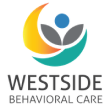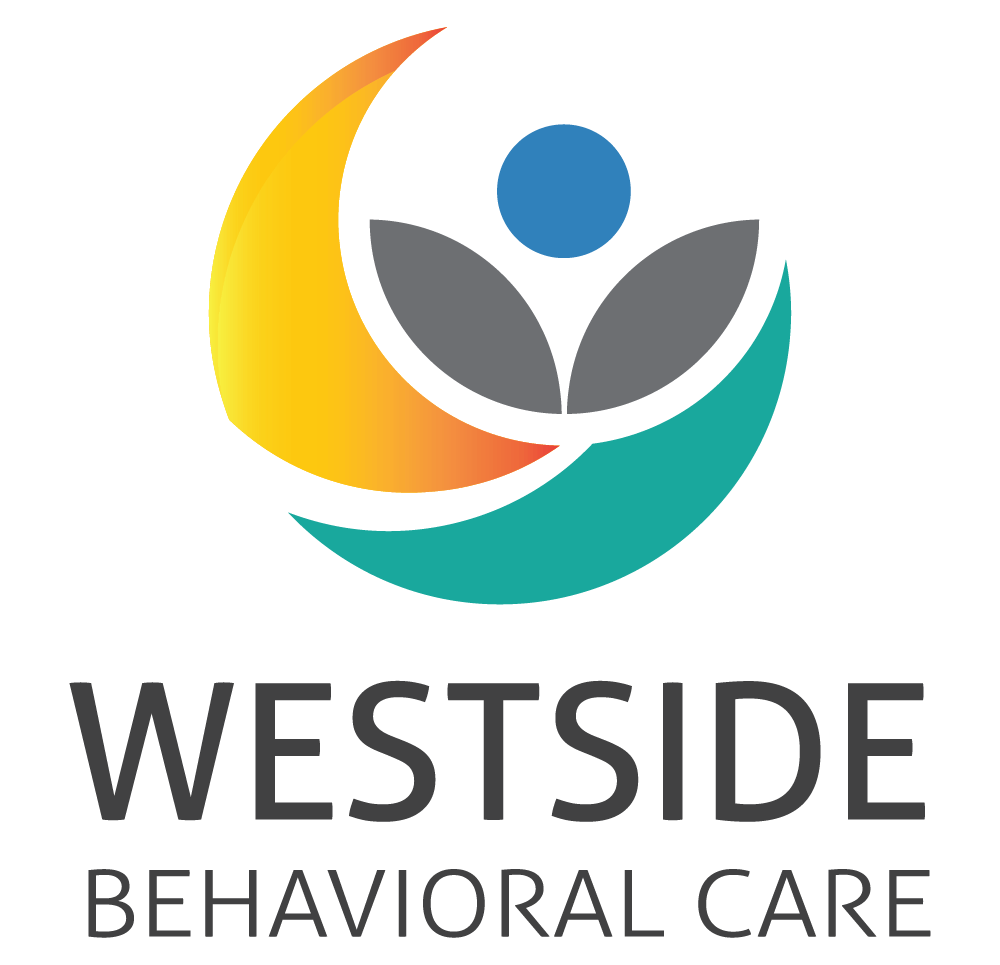Finding the right therapist can feel overwhelming, especially when you’re already struggling. Whether you’re seeking support for yourself, your child, or a loved one, you deserve compassionate care that fits your needs and your budget. Westside Behavioral Care connects people throughout the Greater Denver Area with licensed, experienced therapists, who accept most major insurance plans, making mental health care accessible and affordable.

The Denver metro area is home to diverse communities across Aurora, Lakewood, Arvada, Thornton, Westminster, and beyond. Each neighborhood brings unique opportunities and challenges, but one thing remains constant: mental health matters at every age and every stage of life. From young children navigating developmental milestones to older adults managing life transitions, therapy provides essential support when you need it most.
Westside accepts most major insurers including Aetna, Anthem/Blue Cross Blue Shield, Cigna/Evernorth, Kaiser Permanente, Medicare, Optum/United, and many other insurance plans. You can browse available therapists by specialty, insurance, location, and age to find the right fit for your needs. Ready to take the next step? Call 303-986-4197 or visit https://www.westsidebehavioralcare.com/schedule-online/ to schedule your first appointment today.
Table of Contents
What Is Therapy and Why Does It Matter?
Therapy is a collaborative process where you work with a trained mental health professional to understand your thoughts, feelings, behaviors, situations, and circumstances. It’s not just for crisis moments. Therapy helps with everyday stress, relationship challenges, grief, anxiety, depression, trauma, life transitions, and personal growth.
For young children, therapy might look like play-based approaches that help them express emotions they can’t yet put into words. School-age kids benefit from learning coping skills and building resilience during formative years. Teens navigate identity development, peer pressure, and academic stress with therapeutic support. Young adults face major transitions around college, career, and relationships. Adults manage work-life balance, parenting challenges, and complex life decisions. Older adults work through retirement adjustments, health changes, and finding meaning in later life stages.
The right therapist creates a safe, nonjudgmental space where you can explore what’s on your mind. They bring evidence-based strategies tailored to your specific situation. Every Westside provider lists their training, licenses, and credentials on their profile, so you know you’re working with qualified professionals who meet Colorado’s rigorous standards. Look for the icon below on your therapist’s profile if you’d like to verify their status with the Department of Regulatory Agencies.

Why Look For a Local Denver Therapist?
Denver’s growth over the past few decades has brought opportunities and challenges. The metro area’s population has surged, bringing more diversity and jobs but also increased stress, housing pressures, and longer commutes. Communities like Aurora reflect Colorado’s multicultural makeup, while suburbs like Highlands Ranch and Castle Rock attract growing families seeking quiet neighborhoods.

With so much going on throughout Colorado, it’s no surprise that mental health needs vary from area to area. Downtown Denver professionals struggle with burnout and work stress. Families in Littleton and Centennial seek support for children facing academic pressure. Communities in Commerce City and Thornton are more likely to be navigating economic uncertainty. Throughout Jefferson County, Adams County, Arapahoe County, and Douglas County, people are recognizing that mental health care isn’t a luxury: it’s essential.
Colorado consistently ranks high for outdoor recreation and quality of life, yet the state also faces mental health challenges including seasonal affective disorder during long winters, altitude adjustment effects, and isolation in more rural areas. Access to culturally responsive, insurance-covered therapy helps bridge these gaps.
Westside serves the entire Greater Denver metro area with both in-person and telehealth options, making it easier to access care whether you’re in Cherry Creek, Brighton, Englewood or Broomfield.
Westside Accepts Major Colorado Insurance Plans
When asked, clients report that cost is one of the most common barriers to therapy. Many people avoid seeking help because they assume they can’t afford it. Some people know that their insurance will cover it, but believe that navigating their insurance plan’s coverage is too overwhelming or time consuming. That’s where finding an in-network provider makes all the difference.
Westside Behavioral Care is in-network with Aetna, Anthem/Blue Cross Blue Shield (BCBS), Cigna/Evernorth, Kaiser Permanente, Medicare, Optum/United Healthcare, and more. This means your therapy sessions may be covered at the same rate as other medical care, often requiring only a copay or coinsurance payment.
Here’s what insurance coverage typically includes:
- Initial assessment and diagnostic evaluation
- Individual therapy sessions (typically weekly or biweekly)
- Family therapy when clinically appropriate
- Group therapy options
- Psychiatric medication management when needed
Most insurance plans cover mental health services under the Mental Health Parity and Addiction Equity Act, which requires equal coverage for mental and physical health conditions. Your out-of-pocket costs depend on your specific plan, deductible, and copay structure.
When you browse Westside’s provider roster, you can filter by insurance to see only therapists who are actively accepting your plan. This saves people looking for a provider lots of time and eliminates surprises. In addition, each provider’s profile clearly lists accepted insurance, making it easy to verify coverage before scheduling.
If you’re unsure about your benefits, you can also call your insurance company directly and ask about “outpatient mental health benefits with in-network contracted providers” to learn your copay amount and any session limits. If asked, you can let the support rep know that you plan to be seen for CPT Code 90791 (initial psychiatric diagnostic evaluation) and 90837 (53+ minute psychotherapy session).
Verifying Coverage & Using Your Insurance
Understanding exactly what your insurance covers and how to verify that Westside therapists are in your network helps you avoid surprises and make informed decisions about your care. In general, Westside providers are considered “outpatient in-network contracted providers”. This simply means that while providers are technically in private practice, they are able to bill your insurance as in-network providers. The majority of people won’t have issues using their insurance coverage, but it’s a good idea to verify if you’d like to be certain.
Aetna
- Typical Coverage: Aetna typically covers individual therapy, family therapy, and psychiatric services with copays ranging from $10-$50 per session depending on your specific plan. Most Aetna plans require no referral for outpatient mental health services.
- Verifying In-Network Status
- Visit Aetna’s provider directory at www.aetna.com
- Click “Find care”
- Log in with your Aetna account
- Enter your location (city or zip)
- Enter the specific therapist’s name you’d like to see or “Westside Behavioral Care”
- Browse the provider’s profile for additional details
- You can also call the member services number on your insurance card and ask if the provider you’d like to see appears as a contracted or in-network provider
- Scheduling: Westside makes scheduling with an Aetna provider quick and easy. Simply filter by “Aetna” on our scheduling page to see all therapists who accept your insurance. Select a provider and schedule right on their profile or by calling 303-986-4197.
Anthem/Blue Cross Blue Shield (BCBS)
- Typical Coverage: Anthem/BCBS Colorado plans generally cover mental health therapy with copays between $15-$40 per session. Many plans include both in-person and telehealth coverage with no authorization required for outpatient therapy.
- Verifying In-Network Status
- Use Anthem’s “Find Care” tool at www.anthem.com/find-care
- Log in with you Anthem/BCBS account
- Enter your location (city or zip)
- Select “Behavioral Health”
- Enter the specific therapist’s name you’d like to see or “Westside Behavioral Care”
- Browse the provider’s profile for additional details
- You can also call the member services number on your insurance card and ask if the provider you’d like to see appears as a contracted or in-network provider
- Scheduling: Scheduling with an Anthem Blue Cross Blue Shield provider through Westside is easy. Simply filter by “Anthem Blue Cross Blue Shield” on our scheduling page to see all therapists who accept your insurance. Select a provider and schedule right on their profile or by calling 303-986-4197.
- Typical Coverage: Cigna/Evernorth plans typically cover therapy sessions with copays ranging from $10-$45 with in-network providers. Most plans allow 20+ sessions per year for outpatient mental health services.
- Verifying In-Network Status
- Log into myCigna.com or the Cigna mobile app
- Select the “Find Care & Costs” tool
- Enter the specific therapist’s name you’d like to see or “Westside Behavioral Care”
- Browse the provider’s profile for additional details
- You can also call the member services number on your insurance card and ask if the provider you’d like to see appears as a contracted or in-network provider
- Scheduling: To schedule an appointment with a Westside provider accepting Cigna/Evernorth, you can filter by “Cigna Evernorth” on our scheduling page. From there, you can select a provider and schedule right on their profile or by calling 303-986-4197.
Kaiser Permanente
- Typical Coverage: Kaiser Permanente Colorado members have access to mental health services with copays typically between $10-$30 per therapy session. Kaiser operates somewhat differently as an integrated system, but nearly all Westside therapists are contracted with Kaiser and can see Kaiser members.
- Verifying In-Network Status
- Visit https://healthy.kaiserpermanente.org/colorado/front-door
- Select “Doctors & Locations”
- Select your Kaiser plan type
- Select “Doctors”
- Enter your location (city or zip)
- Enter the specific therapist’s name you’d like to see
- Browse the provider’s profile for additional details
- You can also call the member services number on your insurance card and ask if the provider you’d like to see appears as a contracted or in-network provider
- Scheduling: It’s easy to locate and schedule with a Kaiser-credentialed therapist on Westside’s website. You can navigate to our scheduling page and filter by “Kaiser Permanente”. Then, select a provider and schedule right on their profile or by calling 303-986-4197.
Medicare
- Typical Coverage: Medicare Part B covers outpatient mental health services including therapy and counseling. Traditional Medicare covers 80% of the Medicare-approved amount after you meet your yearly deductible. If you have a Medicare Supplement or Medicare Advantage plan, your coverage may differ.
- Verifying In-Network Status
- Visit https://www.medicare.gov/care-compare
- Select “Doctors & clinicians”
- Enter your location (city or zip)
- Enter the specific therapist’s name you’d like to see or “Westside Behavioral Care”
- Browse the provider’s profile for additional details
- Alternatively, you may call 1-800-MEDICARE (1-800-633-4227) and ask if the provider you’d like to see appears as a contracted or in-network provider
- For Medicare Advantage plans, check your plan’s specific provider directory online or call the number on your member card
- Scheduling: Westside makes it simple to schedule with a Medicare provider. Simply filter by “Medicare” on our scheduling page to see all therapists who accept your insurance. Select a provider and schedule right on their profile or by calling 303-986-4197.
Optum/United
- Typical Coverage: Optum and United Healthcare plans typically cover individual and family therapy with copays ranging from $15-$50 per session. Most plans include robust mental health benefits under behavioral health coverage through Optum.
- Verifying In-Network Status
- Visit myuhc.com or the UnitedHealthcare app
- Select the “Find a Provider” tool
- Select “Behavioral Health Directory”
- Select your Optum/United plan type
- Enter the specific therapist’s name you’d like to see or “Westside Behavioral Care”
- Browse the provider’s profile for additional details
- You can also call the member services number on your insurance card and ask if the provider you’d like to see appears as a contracted or in-network provider
- Scheduling: Scheduling with an Optum/United provider through Westside is quick and easy. Simply filter by “Optum/United” on our scheduling page to see all therapists who accept your insurance. Select a provider and schedule right on their profile or by calling 303-986-4197.
If Your Insurance Isn’t Listed
Westside accepts many insurance plans beyond those listed above. If you don’t see your insurance mentioned, don’t assume you’re not covered. You can browse our full list of accepted insurers or contact our receptionists at 303-986-4197 to ask about your specific plan. Our team stays updated on insurance contracts and can quickly tell you whether we accept your coverage.
Evidence-Based Approaches Used in Therapy
Therapy isn’t one-size-fits-all. Licensed therapists typically draw from various evidence-based approaches, tailoring their methods to your unique needs and goals. Your therapist may discuss which approaches might work best for your situation during your initial consultation. Many therapists integrate multiple methods based on what you need at different points in therapy.
Cognitive Behavioral Therapy (CBT)
CBT helps you identify thought patterns that influence emotions and behaviors. It’s highly effective for anxiety, depression, OCD, and many other concerns. In CBT, you learn practical skills to challenge negative thinking and develop healthier responses. Children might use CBT workbooks and activities, while adults often practice thought records and behavioral experiments.
Dialectical Behavior Therapy (DBT)
Originally developed for borderline personality disorder, DBT now helps people manage intense emotions, improve relationships, and reduce self-destructive behaviors. It teaches four core skills: mindfulness, distress tolerance, emotion regulation, and interpersonal effectiveness. Teens particularly benefit from DBT’s structured approach to emotional management.
Acceptance and Commitment Therapy (ACT)
ACT helps you accept what’s outside your control while committing to actions that align with your values. Rather than fighting uncomfortable thoughts and feelings, you learn to experience them without letting them control your choices. ACT works well for chronic pain, anxiety, depression, and life transitions.
Trauma-Focused Approaches
Trauma affects people of all ages. Evidence-based trauma therapies include Eye Movement Desensitization and Reprocessing (EMDR), Trauma-Focused CBT (TF-CBT), and somatic approaches that address how trauma lives in the body. These methods help process difficult experiences safely without retraumatization.
Play Therapy and Child-Centered Approaches
Young children communicate through play. Licensed play therapists use toys, art, and games to help children express feelings, process experiences, and develop coping skills. It’s particularly effective for children who’ve experienced trauma, family changes, or behavioral challenges.
Family Systems Therapy
Sometimes individual struggles reflect larger family dynamics. Family therapy addresses communication patterns, boundaries, and relationships that impact everyone. It’s valuable for parenting challenges, sibling conflicts, divorce adjustment, and intergenerational patterns.
Age-Specific Considerations
Mental health needs change as we grow and develop. We tend to find ourselves in different circumstances, facing different challenges at different points in our lives. Finding a therapist who understands your specific life stage makes a meaningful difference.

Young Children (Ages 1-9)
Early childhood lays the foundation for lifelong mental health. Young children benefit from therapy for developmental delays, behavioral challenges, anxiety, trauma, family transitions like divorce, and processing grief. Therapists use play-based methods, parent coaching, and family involvement to support healthy development.
Signs that therapy might help a kid include persistent tantrums beyond typical development, difficulty separating from caregivers, sleep disturbances, regression in skills already learned, or extreme reactions to changes. Early intervention prevents small challenges from becoming bigger problems.
Children (Ages 10-12)
Pre-teens navigate increasingly complex social worlds while developing independence. School stress, peer relationships, bullying, family dynamics, and early signs of anxiety or depression often emerge during these years. Social media use may also negatively impact children’s mental health. Therapy helps children build emotional literacy, develop problem-solving skills, and strengthen self-esteem before adolescence intensifies these challenges.
Teens (Ages 13-18)

Adolescence brings identity exploration, intense emotions, peer pressure, academic stress, and physical changes. Teens face unique pressures around social media, college planning, dating, and finding independence while still needing family support. Therapy provides a confidential space where teens can discuss concerns they might not share with parents or friends.
Common teen therapy topics include anxiety, depression, self-harm, eating concerns, substance use, LGBTQIA+ identity, trauma processing, and relationship skills. Therapists trained in adolescent development understand how to engage teens authentically while respecting their growing autonomy.
Young Adults (Ages 19-25)
The transition to adulthood involves major decisions about education, career, relationships, and independent living. Young adults often struggle with life direction, relationship challenges, anxiety about the future, managing newfound responsibilities, and processing childhood experiences with adult perspective.
Many young adults seek therapy to develop healthier relationship patterns, manage career stress, address mental health conditions that emerged earlier, or simply navigate the overwhelming uncertainty of early adulthood. This age group particularly benefits from therapists who understand current cultural pressures and economic realities.
Adults (Ages 26-64)

Adult life brings its own stresses: career challenges, parenting, caring for aging parents, relationship difficulties, health concerns, financial pressures, and existential questions about meaning and purpose. Many adults grew up believing therapy was only for “serious problems,” but increasingly recognize that mental health maintenance matters as much as physical health.
Adults seek therapy for depression, anxiety, trauma, grief, relationship counseling, life transitions, work stress, and personal growth. Finding a therapist who respects your time constraints and offers flexible scheduling options makes consistent care possible.
Older Adults (Ages 65+)
Later life involves significant transitions: retirement, role changes, health challenges, grief and loss, cognitive concerns, and finding purpose beyond career identity. Older adults face unique challenges including isolation, mobility limitations, chronic illness management, and processing life review.
Therapy helps older adults maintain mental wellness, cope with losses, manage depression and anxiety, address family dynamics, and find meaning in later life stages. Therapists experienced with older adults understand how aging intersects with mental health and avoid age-related stereotypes.
Benefits of Professional Support

Relying on friends, family, and self-help resources can be helpful for people lucky enough to have access to them. While support networks matter enormously, professional therapy offers distinct benefits.
Trained expertise: Therapists complete extensive education, supervised clinical hours, and ongoing training in evidence-based methods. They recognize patterns you might miss and guide you toward effective strategies.
Objective perspective: Unlike friends or family with their own emotional investment in your choices, therapists provide unbiased support focused entirely on your wellbeing.
Confidential space: Therapy creates a judgment-free zone where you can discuss anything without worrying about gossip, hurt feelings, or social consequences.
Early intervention: Addressing mental health concerns early prevents them from worsening. What feels manageable now might escalate without proper support.
Skill development: Therapy isn’t just talking about problems. You learn practical tools for managing emotions, improving relationships, changing behaviors, and building resilience.
Improved outcomes: Research consistently shows that therapy works. People who engage in evidence-based therapy experience symptom reduction, improved functioning, better relationships, and enhanced quality of life.
Preventive care: Even when things are relatively okay, therapy helps you develop coping skills, process past experiences, and build emotional resilience for future challenges.
Many people wish they’d started therapy sooner. The benefits extend beyond symptom relief to fundamental improvements in how you understand yourself and navigate life.
How to Find the Right Therapist in Greater Denver
Choosing a therapist is deeply personal. The best therapist for one person might not fit another’s needs. Here’s how to find your right match through Westside Behavioral Care.
Start With Your Priorities
Consider what matters most to you:
- Insurance: Will you only work with in-network providers?
- Location: Do you prefer in-person sessions in a specific area, or are you open to telehealth?
- Specialization: What concerns or issues would you like to address in therapy?
- Identity factors: Do you want a therapist who shares cultural background, speaks your language, or has specific identity-related expertise?
- Age group: Is your therapist experienced with your or your loved one’s age group?
- Availability: Is the provider accepting new clients? Will you need a lot of flexibility for school or work?
Browse Westside’s Provider Profiles
Westside’s website will allow you to filter providers by various factors. Once you’ve narrowed down to your top options, carefully reading each profile will give you insight into the approach and style you can expect. Each provider profile includes:
- Photo and bio
- Licensed credentials (LPC, LCSW, PsyD, PhD, etc.)
- Specializations and treatment approaches
- Accepted insurance plans
- Age groups served
- Languages spoken (if bilingual)
- Scheduling availability
Take your time reading and comparing profiles. Do they mention experiences or approaches that resonate with you? Trust your instincts about who feels like a potential fit.
Consider Telehealth vs. In-Person

Both formats offer effective therapy. Telehealth provides convenience, eliminates commute time, and increases access for those with mobility challenges or transportation barriers. In-person sessions offer more traditional face-to-face connection.
Many Westside therapists offer both options, letting you choose based on preference or circumstances. Some clients start with telehealth and transition to in-person, or alternate based on weather, schedule, or privacy considerations.
Give It a Few Sessions
Therapy relationships develop over time. While you might feel instant rapport with some therapists, others take a few sessions to build trust. Most experts recommend attending at least two to three sessions before deciding whether a therapist is the right fit.
That said, if you don’t think you’ll feel comfortable working with a provider, it’s okay to try someone else. Finding the right therapist match matters more than sticking it out with the wrong person.
Ask Questions
Good therapists welcome questions about their approach, experience, and how they work. Consider asking:
- What’s your experience with [my specific concern]?
- What approach or methods do you typically use?
- How do you measure progress?
- What should I expect in terms of session frequency and duration?
- Have you worked with similar clients in the past?
Trust the Process
Therapy requires vulnerability, which may feel uncomfortable at first for some. Most people feel a bit antsy before their first few sessions. That’s completely normal. As you build trust with your therapist and practice new skills, the work gets easier and more rewarding.
Take the Next Step Toward Better Mental Health

Finding the right therapist isn’t always quick or straight forward. Westside Behavioral Care makes it easy to find compassionate therapy in the Greater Denver Area for all ages. Whether you’re seeking support for yourself, your child, a teen, or a loved one, our licensed therapists provide evidence-based care tailored to your unique needs.
We accept most major plans including Aetna, Anthem/Blue Cross Blue Shield, Cigna/Evernorth, Kaiser Permanente, Medicare, Optum/United Healthcare, making quality mental health care accessible and affordable. Browse our provider directory to find therapists by specialty, insurance, location, and age group, then schedule online at your convenience.
You, your partner, your children, and your family deserve support. Mental health challenges don’t have to be faced alone.
Call Westside Behavioral Care at 303-986-4197 or schedule online today at https://www.westsidebehavioralcare.com/schedule-online/
Taking the first step is often the hardest part. From there, healing, growth, and positive change become possible. Let us help you find the right therapist to begin your journey toward better mental health.
Frequently Asked Questions
What is therapy and who can benefit from it?
Therapy is a confidential process where you work with a licensed mental health professional to address emotional, behavioral, or mental health concerns. Anyone can benefit from therapy. You don’t need a diagnosed condition or crisis to seek support. People attend therapy for stress management, relationship challenges, life transitions, personal growth, trauma processing, anxiety, depression, grief, and countless other reasons. Therapy is for anyone who wants to improve their mental health, develop better coping strategies, or simply have a supportive space to process life’s challenges.
Does insurance cover therapy in Colorado?
Most major insurance plans cover mental health therapy under the Mental Health Parity Act, which requires equal coverage for mental and physical health services. When you see an in-network therapist like those at Westside Behavioral Care, your therapy sessions are typically covered at the same rate as other medical care. You’ll usually pay a copay (often $15-$50 per session) or coinsurance (typically 10-30% of the session cost) depending on your specific plan. Some plans may require you to pay the full amount until your deductible is met before they start to cover the sessions.
Westside accepts Aetna, Anthem/BCBS, Cigna/Evernorth, Humana, Kaiser Permanente, Medicare, and Optum/United, making therapy affordable and accessible. You may wish to contact your insurance provider to verify your specific benefits.
How do I choose the right therapist in the Denver area?
Choosing the right therapist involves considering several factors: specialization in your specific concerns, experience with your age group, accepted insurance, location or telehealth availability, and personal connection. Start by browsing Westside’s provider directory and filtering by your priorities. Read therapist profiles to learn about their approaches and specializations. Some people may need to meet with a couple of therapists to find the best fit. Trust your instincts: the therapeutic relationship matters enormously for successful outcomes. If you don’t feel comfortable opening up after a few sessions, it’s okay to try someone else.
What approaches work best for different age groups?
Different ages benefit from different therapeutic approaches.
- Young children (1-9) respond well to play therapy, art therapy, and family involvement, as they express themselves through play rather than words.
- Children (10-12) benefit from CBT adapted for their developmental level, skill-building approaches, and family therapy.
- Teens (13-18) often connect with DBT for emotion regulation, CBT for anxiety and depression, and trauma-focused approaches when needed.
- Young adults (19-25) benefit from approaches addressing identity development, relationship skills, and life transitions.
- Adults (26-64) use various approaches depending on their concerns, including CBT, psychodynamic therapy, and EMDR for trauma.
- Older adults (65+) benefit from life review therapy, grief counseling, and approaches addressing aging-related transitions. Your therapist will tailor their approach to your specific needs regardless of age.
How long does therapy typically take?
Therapy duration varies widely based on your goals, concerns, and circumstances. Some people attend short-term therapy for 4-10 sessions to address specific issues or learn targeted skills. Others engage in longer-term therapy for months or years to work through complex trauma, develop deeper self-understanding, or manage chronic conditions.
Many people find that attending weekly sessions initially, then spacing out to biweekly or monthly as they progress, works well. Your therapist will discuss realistic timelines during your initial sessions and regularly review progress with you. There’s no predetermined timeline, therapy lasts as long as it’s beneficial for you.
Is online therapy as effective as in-person therapy?
Research shows that telehealth therapy is just as effective as in-person therapy for most concerns, including anxiety, depression, PTSD, and relationship issues. Online therapy offers convenience, eliminates commute time, increases access for those in remote areas or with mobility challenges, and provides privacy for those who prefer discreteness. Some people find it easier to open up from the comfort of home, while others prefer the clear boundaries of in-office sessions. Many Westside therapists offer both options, letting you choose based on preference. The most important factor in therapy success is the therapeutic relationship and evidence-based techniques, not the delivery format.
What if I’ve tried therapy before and it didn’t work?
Many people who had unsuccessful therapy experiences in the past find that the issue wasn’t therapy itself, but rather the specific therapist match or approach. Perhaps the therapist wasn’t trained in methods that work best for your concerns, or the personal connection just wasn’t right. Sometimes people attend therapy before they were truly ready to engage in the work. Other times, life circumstances prevented consistent attendance.
If therapy hasn’t worked before, consider which factors might make a difference this time: a different therapist with expertise in your specific concerns, a new therapeutic approach, more consistent attendance, or simply being in a different place in your life where you’re more ready for change. Don’t let past experiences prevent you from getting support that could help now.
How do I talk to my child or teen about starting therapy?
Talking to your child or teen about therapy depends on their age and the situation.
For young children, keep it simple: “We’re going to meet with someone who helps kids with their feelings” or “this person helps families solve problems together”. Emphasize that therapy is a safe space to talk, play, or draw, and that many children see therapists.
For older children and teens, be more direct about what you’ve noticed and why you think therapy could help, while emphasizing that it’s a supportive resource, not a punishment. Listen to their concerns and answer questions honestly. If they’re resistant, validate their feelings while explaining why you believe therapy is important.
Once they meet their therapist and experience how supportive therapy can be, most children and teens become more receptive.


